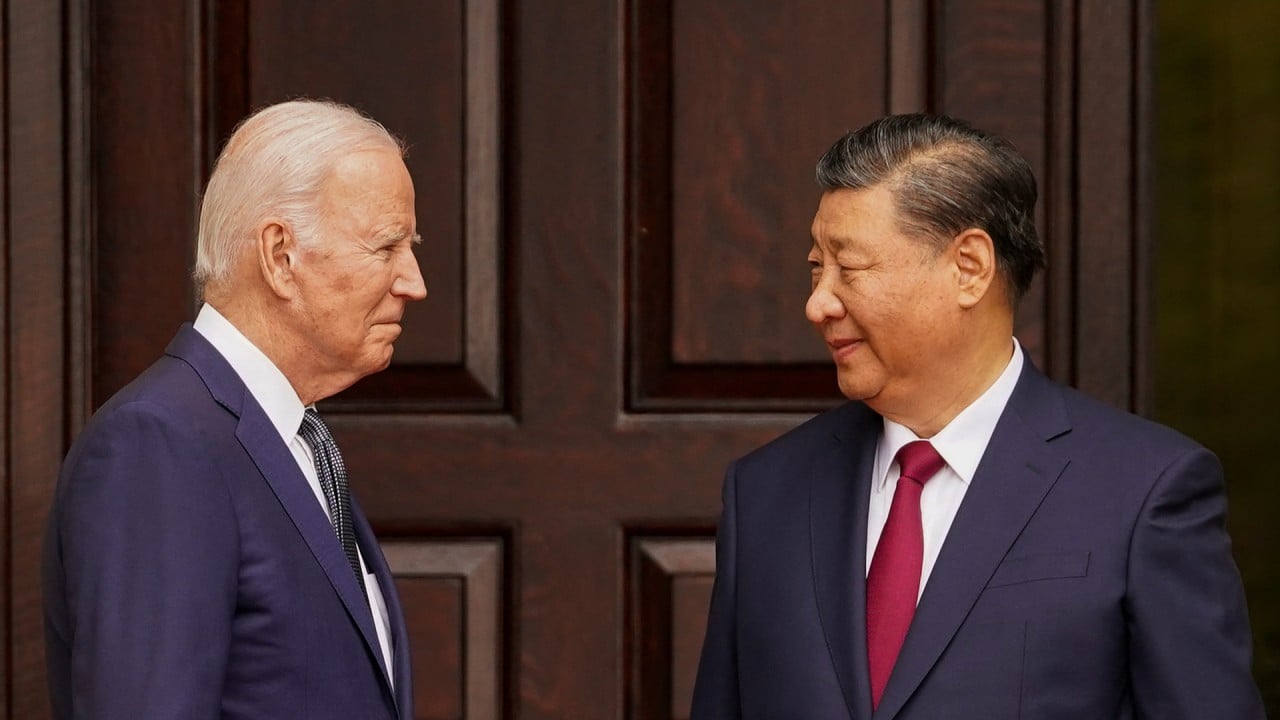Xi-Biden talks clear ‘low bar for success’ but bigger hurdles loom for US-China relations
The Chinese leader also had the opportunity to tell his American counterpart that “China has no plans to overtake or replace the US”.
The summit at the Filoli estate also offered Biden a chance to showcase that he is still capable of handling arguably one of the country’s most complicated international relationships while holding firm on core American concerns in the lead-up to the US presidential election in just under 12 months’ time.
Both sides seemed to have taken enough away from the meeting to claim a win, according to Yun Sun, director of the China Programme at the Washington-based Stimson Centre.
“The meeting itself is a significant achievement. The signals and measures toward a more stable US-China relations are reassuring for the region and the world,” she said.
Colleen Cottle, deputy director of the Global China Hub at the Washington-based Atlantic Council, echoed that the “overarching” message of the summit was that both sides see value in stabilising the relationship and are committed to maintaining high-level communications even as they continue to compete.
“Biden seems to have made the most of his meeting with Xi, which achieved the admittedly low bar for success, at least in the near term,” she wrote in a note.
She said the talks would help Xi’s efforts to lure foreign investors back to the Chinese market while Biden had a chance to raise specific requests such as the release of US citizens detained in China.
Chinese media highlight leader’s ‘warm welcome’ in US in Xi-Biden coverage
Chinese media highlight leader’s ‘warm welcome’ in US in Xi-Biden coverage
The two also agreed to reopen lines of communication between the two countries’ militaries, which had been cut for more than a year.
Sun said the deliverables on those two matters would “have lasting implications”, saying: “Whatever implementation is delivered will be a win.”

However, the summit still laid bare the profound disagreements between Washington and Beijing on a number of issues, such as tariffs, curbs on hi-tech exports to China, Taiwan, the South China Sea and human rights.
“The US cannot hope it can pick up the pieces and mend ties, and the US must not mistake China’s goodwill for being feeble or weak.
“Nether can the US hope that by creating a seemingly good atmosphere for talks in San Francisco and offering some hospitality, it can expect Beijing to back down on issues that matter to its core interests.”
Chen Zhiwu, chair professor of finance at the University of Hong Kong, said both sides are preparing for further confrontations, adding: “The meeting shows that it is almost impossible for any effort to reverse the trend of hostility and the lack of trust between the two countries.”
Amid a bipartisan consensus in the US on a more competitive approach to Beijing, the White House has described China as a “pacing threat” while Biden told Xi that the two countries “are in competition”.
Meanwhile, Beijing has repeatedly accused the US of trying to “contain” China’s rise and dismissed the security concerns cited by Washington as justification for limiting its access to chip-related technologies.
The White House insists its “small yard, high fence” approach has narrowly targeted sensitive technologies to prevent them from being used by the Chinese military.
The Biden administration is not expected to back down on this significant aspect of its China policy, as maintaining US global leadership in technology and outcompeting China on technology is a priority.
Xi and Biden working to enhance trust, says Chinese foreign minister
Xi and Biden working to enhance trust, says Chinese foreign minister
Shen Dingli, a Shanghai-based international relations scholar, also warned that unexpected bumps could derail efforts to stabilise relations, alluding to the crisis earlier this year when an alleged Chinese spy balloon was downed off the US east coast.
“Who can guarantee that there won’t be a second balloon in the next six months?” he said, citing other risks such near-misses between warships or planes in the South China Sea or another visit to Taiwan by senior US officials.
Additional reporting Frank Chen






